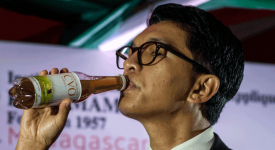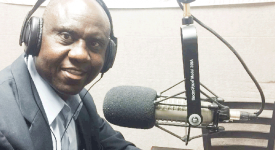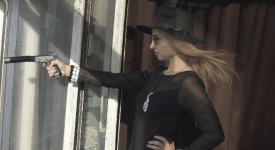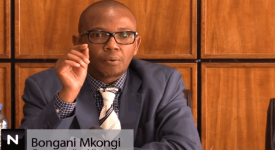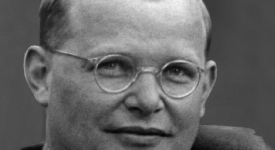Witchcraft, the dreaded belief in the supernatural to cause harm on a target, is considered by many to be a reality comparable to tangible objects such as table, stones, chairs, etc. It is a phenomenon which can no longer be set aside as an object impregnating the minds of the disillusioned, illiterate, superstitious. Campaigners of this reality cover such a vast array of the human landscape that it can not any more be declared as a figment of the imagination of the barbarian, neither may we in our liberality relegate witchcraft belief as the prize paid by the uncouth.
Descending from an ontology enveloped and dipped in religiously interpreted realities, it is little wonder that the African person finds his salvation in the here and now, not in some hereafter; what happens after this life has to be left till that time when accountability is requested. In the meantime, the African spirituality reads this life through a “black” and “white lens. Actually, no middle grounds are allowed; you are either good or bad. So, taxonomies of bad things in this life are easily labelled into categories of black or white. When things are not going well for the African person, something–or someone–has to be responsible, or held accountable for this reality.
This “reality” of witchcraft belief is in fact more pronounced and “practiced” among Africa’s political elite. Of course, that does not leave the practice of the occult to the exclusive preserve of Africans, after all, Satan is inside the Church of Satan, not as a mere object of worship, but he comes also on America’s Got Talents, and some of the performers entertained us with witchcraft par excellence!
When many educated Africans think of witchcraft their hatred for Africa could be seen visibly in the tonality as well as in their facial expressions, a palpable anger toward a nagging enemy.
A few years ago, I was invited to a gathering of witches. It was a coven. I was black, they were all white, with different kinds of costumes, it was so surreal, soo-real. And then, you could read the strangeness which I represented in the room. Whether it was my color of skin or my unintiatedness that gave me away, I could not tell. Conversations went (well?); I forced it because I was doing a research on the phenomenon, a continuation of the ritual killings and witchcraft belief researches which I had begun while I was still graduate student at Nigeria’s premiere University of Ibadan. I can’t disclose more of what I witnessed on that day here.
Among my findings about the phenomenon called witchcraft and belief in it includes a rather tepid view among text-influenced and western-inclined Africans, some of whom even call this reality “barbaric.” Yet, the nature of their views does not prevent them from seeking solutions to their life’s problems, including visiting with those who have powers that are similar or near those of the witch. Also, the Christian believers, those of the pentecostal temperate, often support their claim by reading out aloud from Ephesians chapter 6: 12, paraphrased: “we war not against flesh and blood, but against principalities and powers.”
Our African hospitals are dysfunctional, our roads impassable, educational standards fallen, and public infrastructures dilapidated. However, one visible and undeniable sign of progress is the presence and representation of religiosity. Houses of prayers are springing up by the minutes, spearheaded by university graduates, most of whom have been “called” by a voice from heaven. There are cries of healings and miracles explosion, while diseases in our hospitals are namelessly multiplying themselves. Now, that Ebola has arrived and ensconced himself in west Africa, which of the categories of witchcraft would take the blame? The irresponsible government in the flesh of men, or often touted (female) witches in spirit?
Source: www.dolali.org–All Rights Reserved

